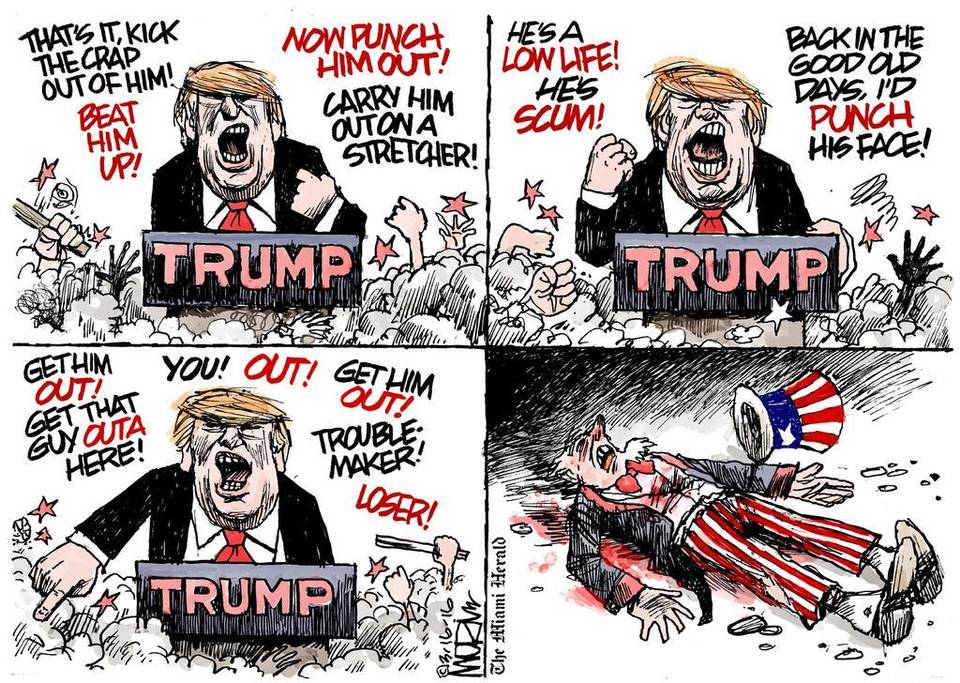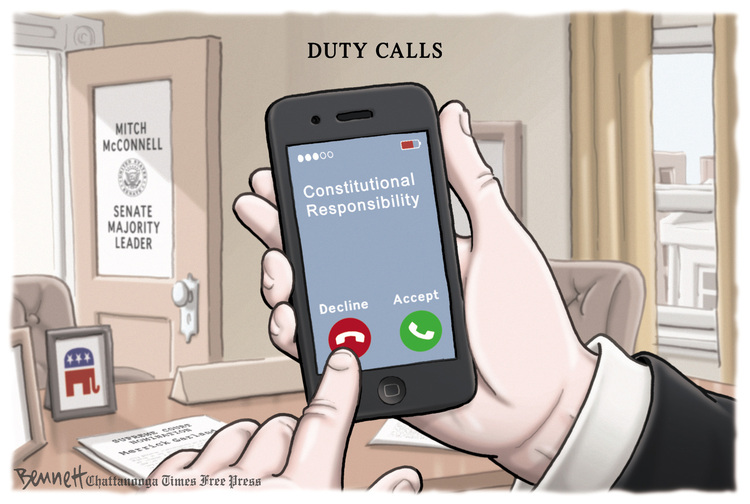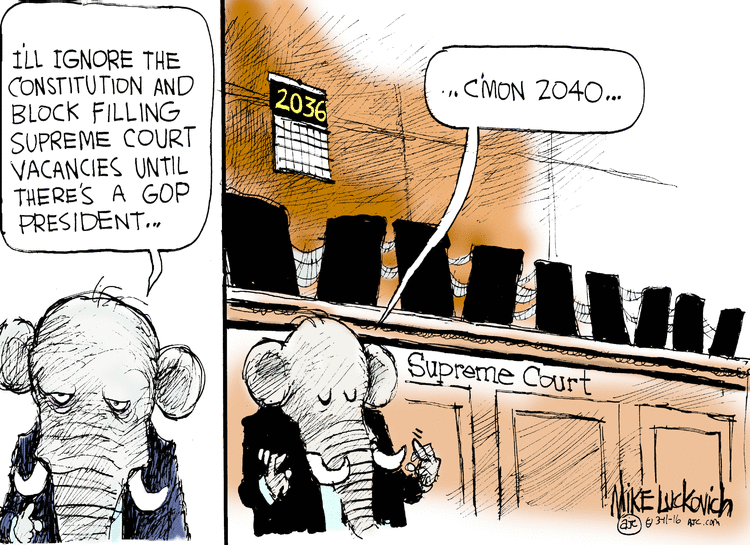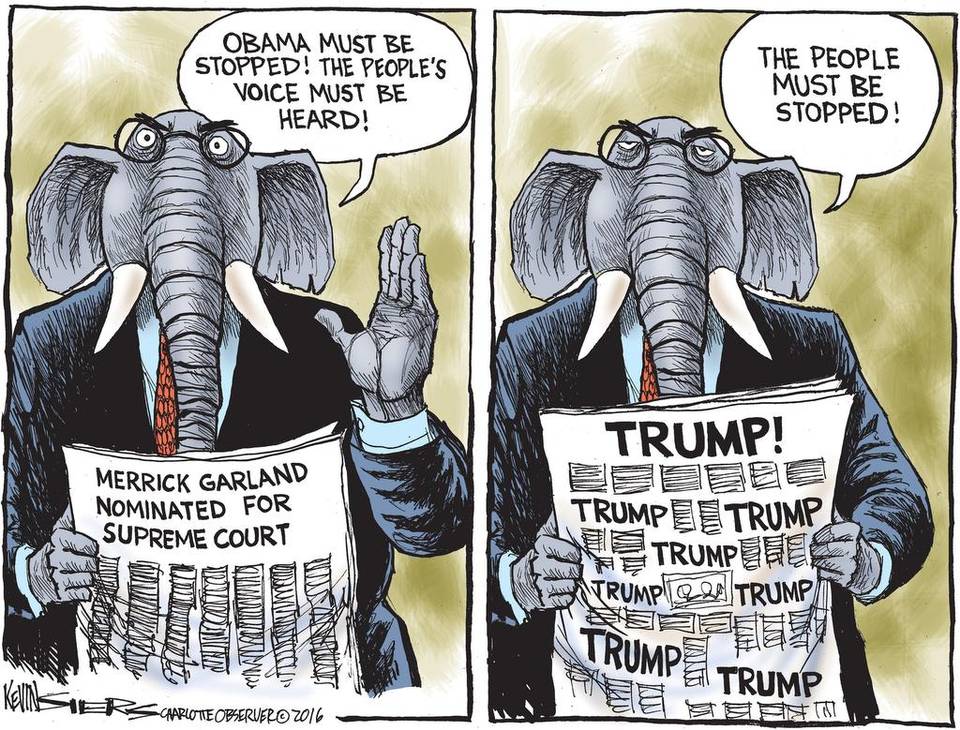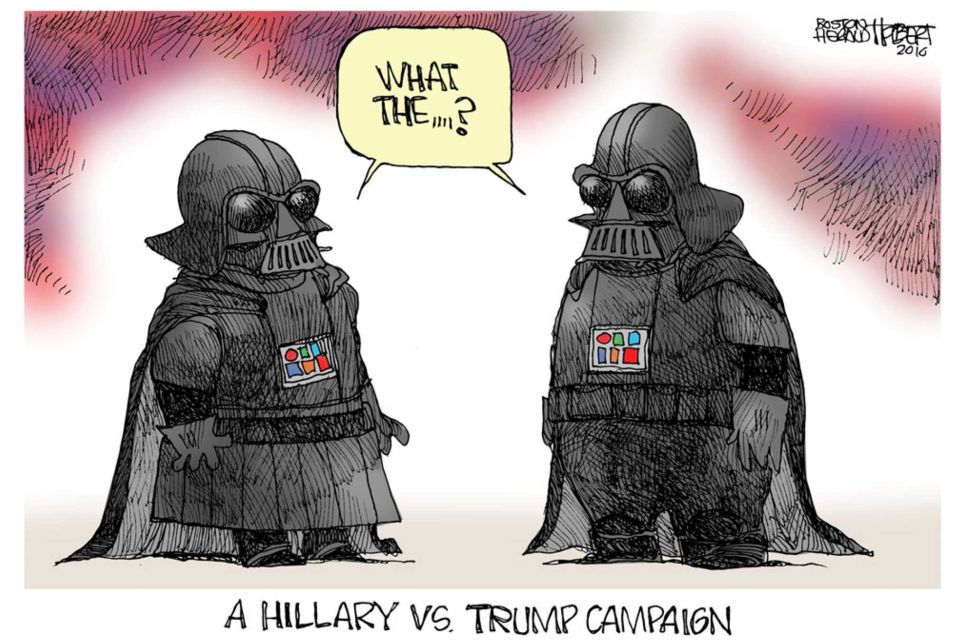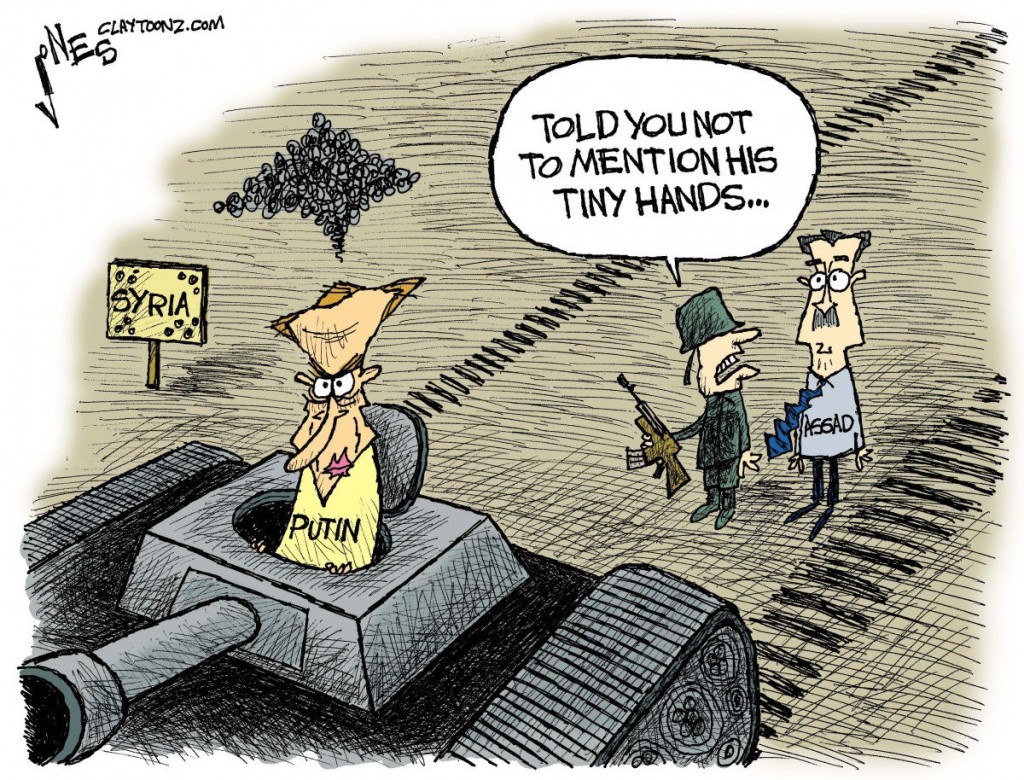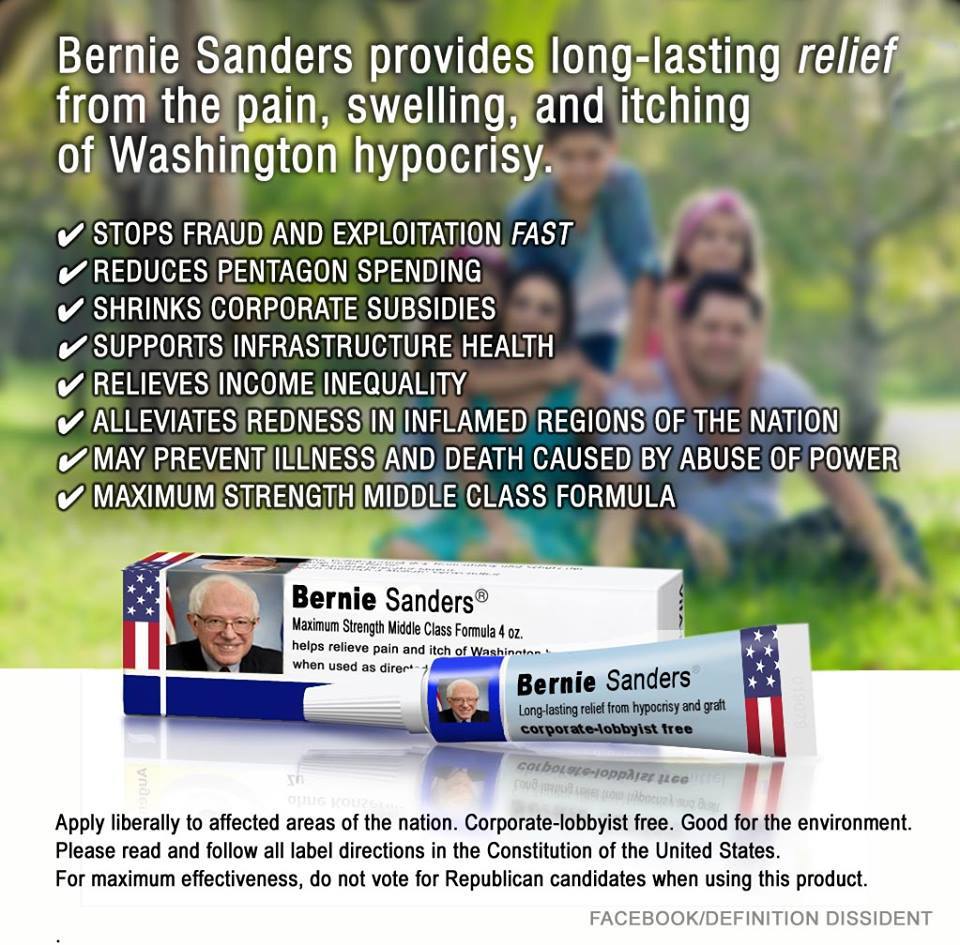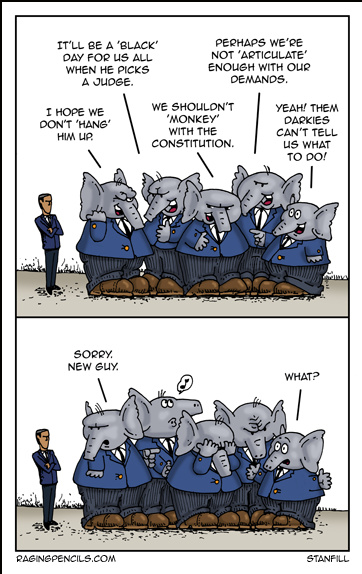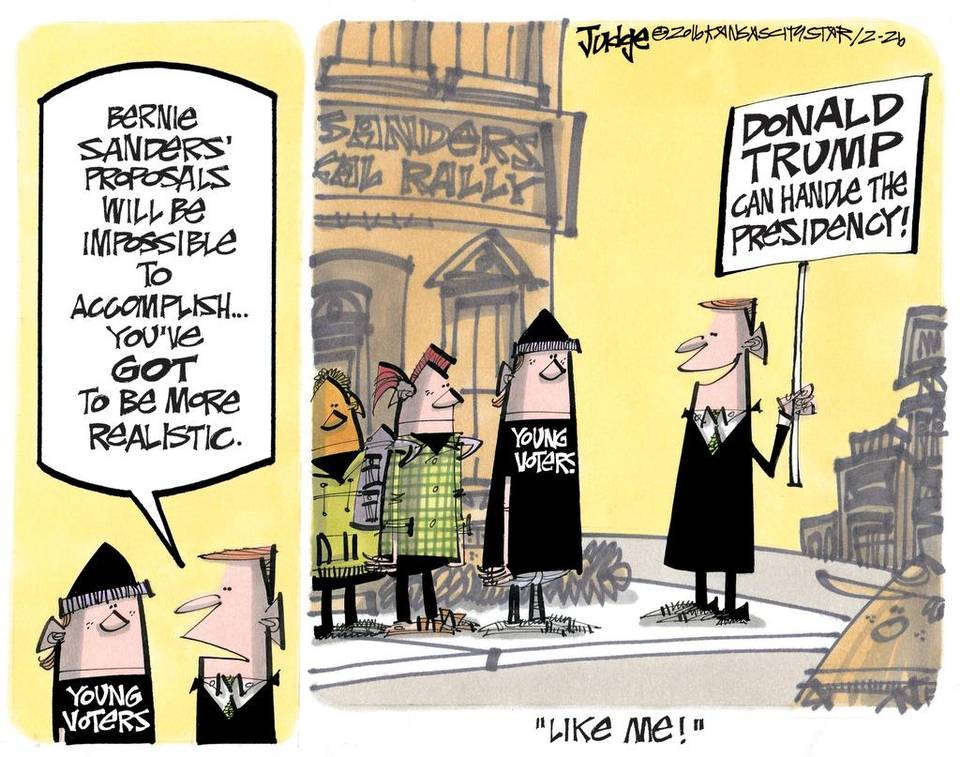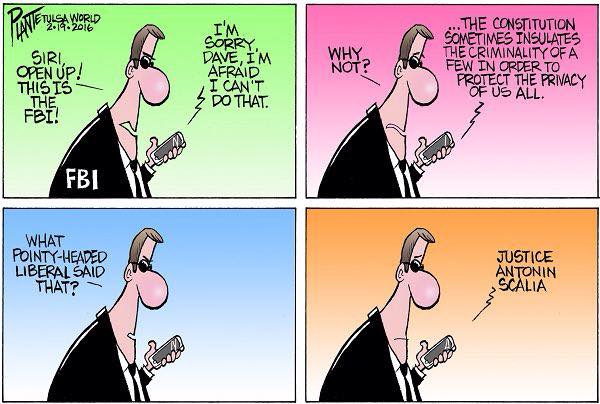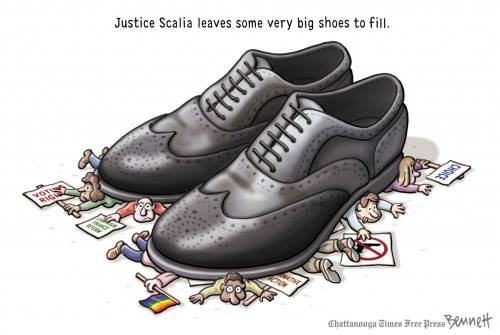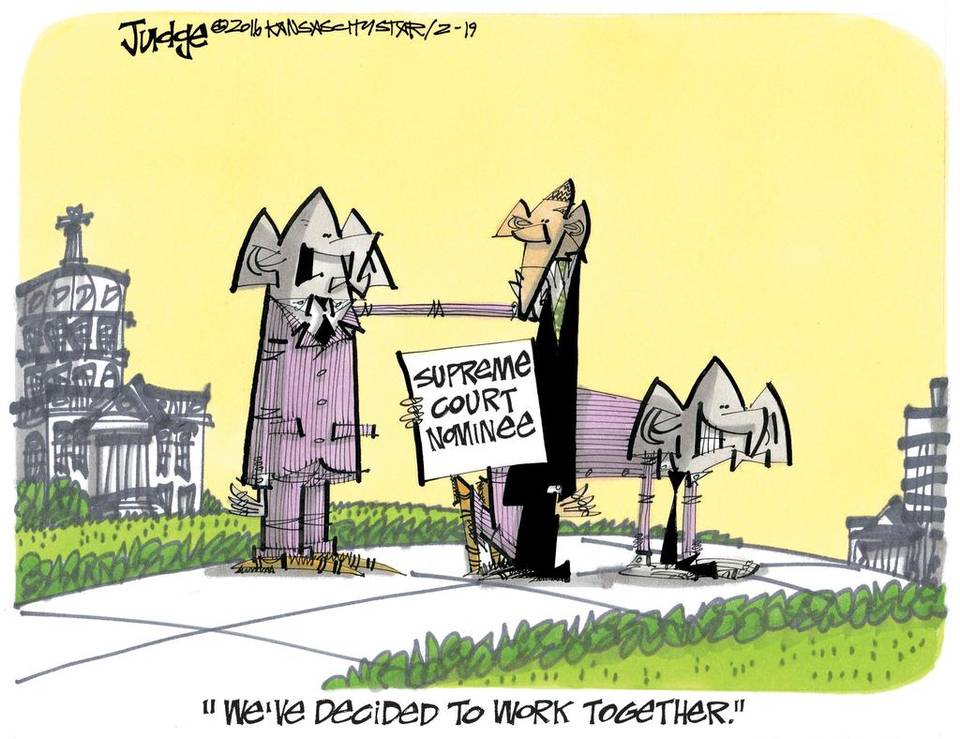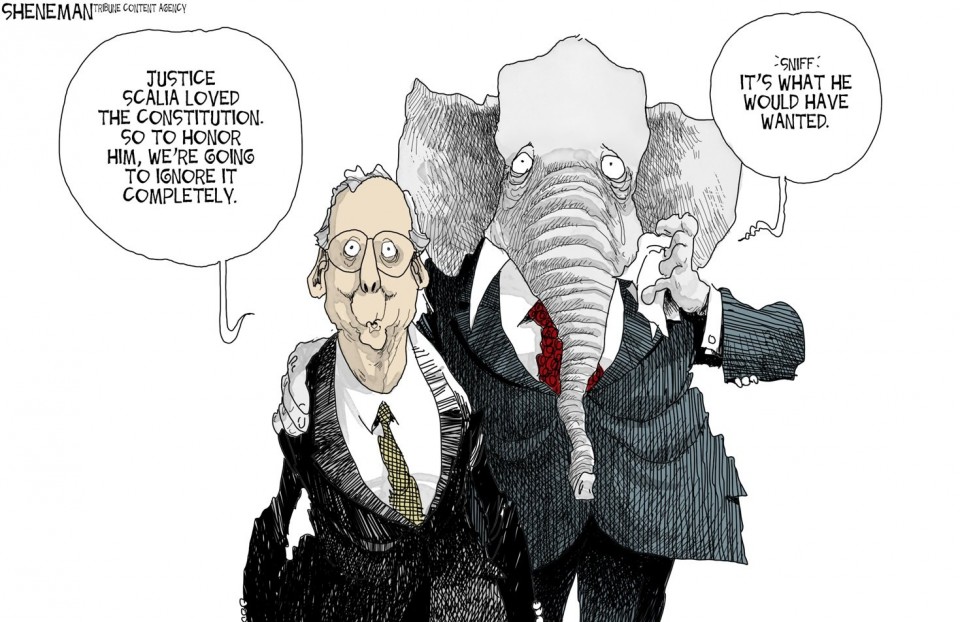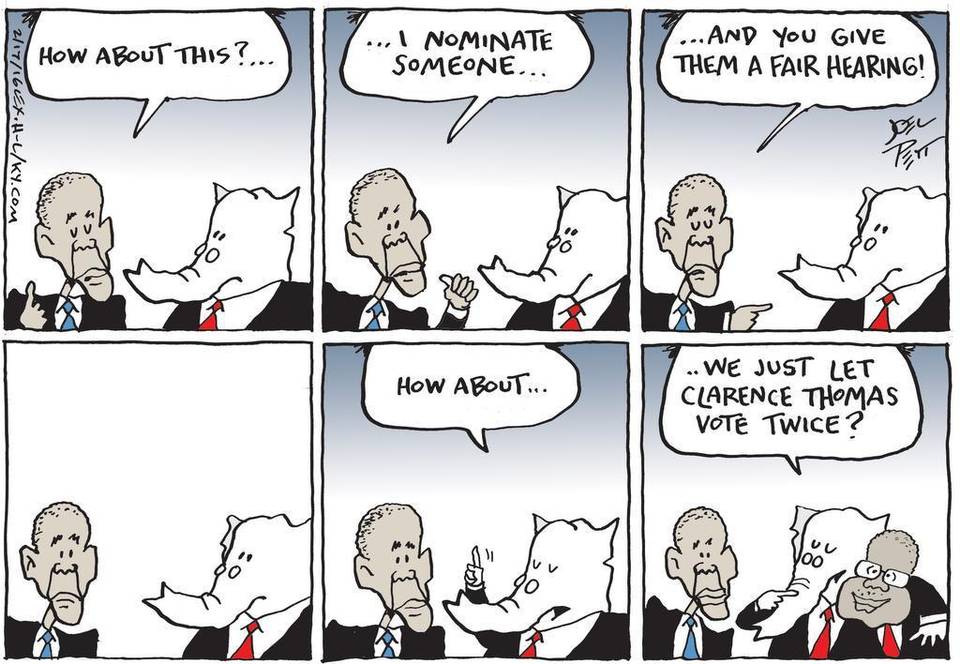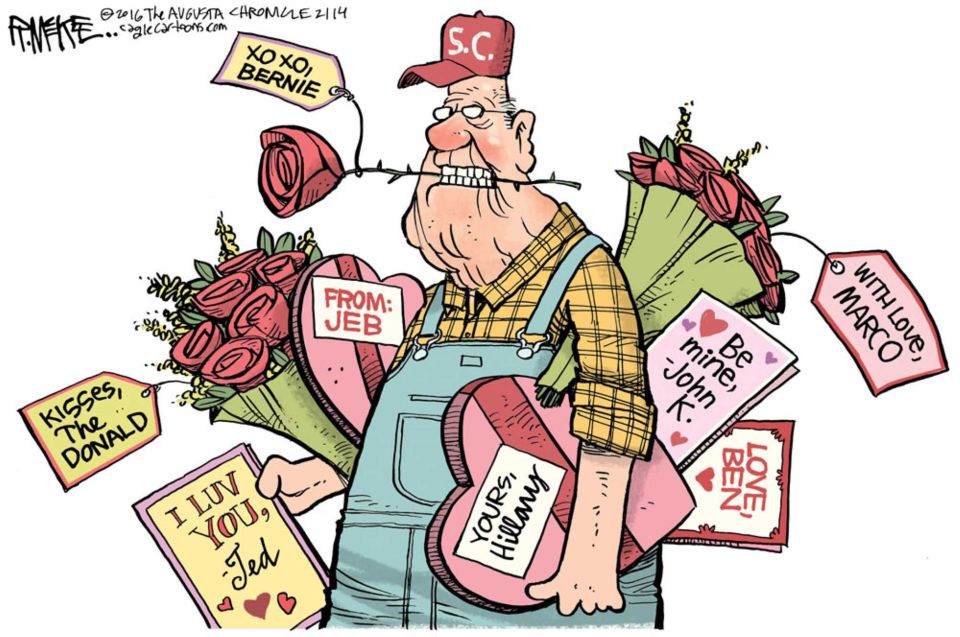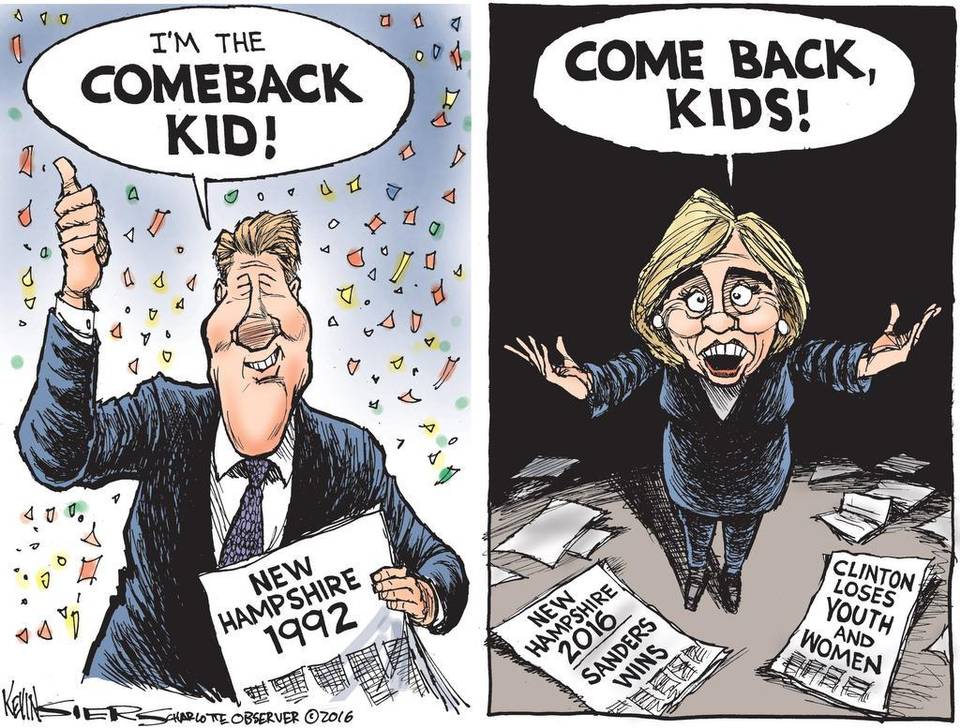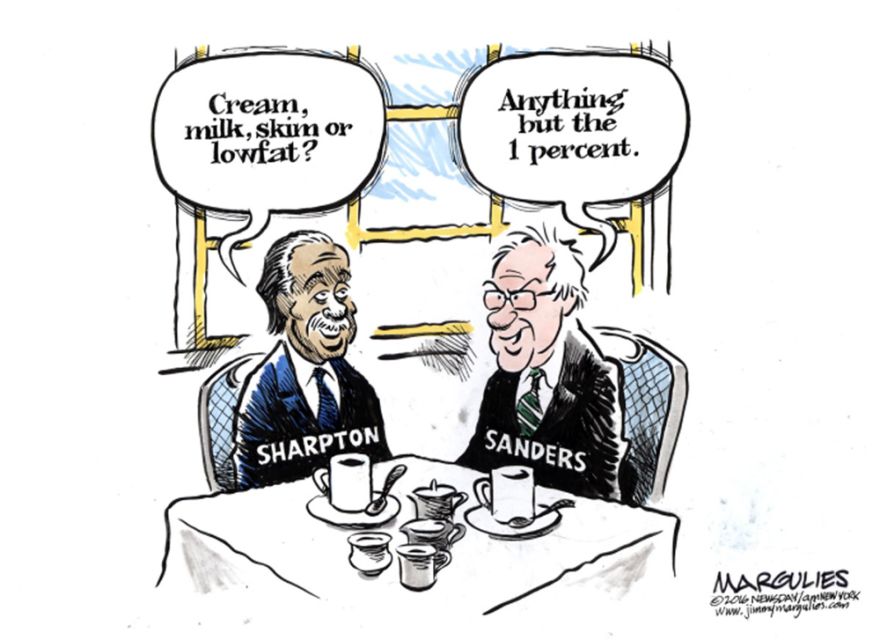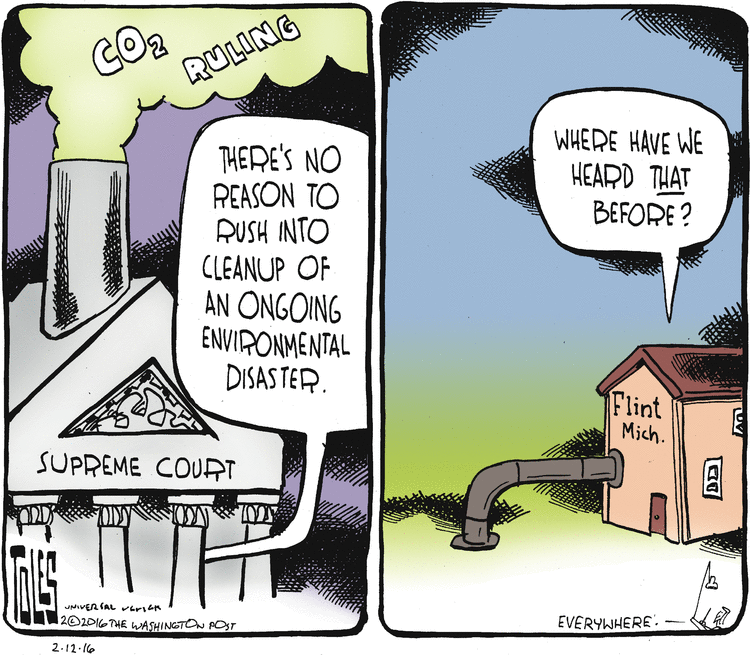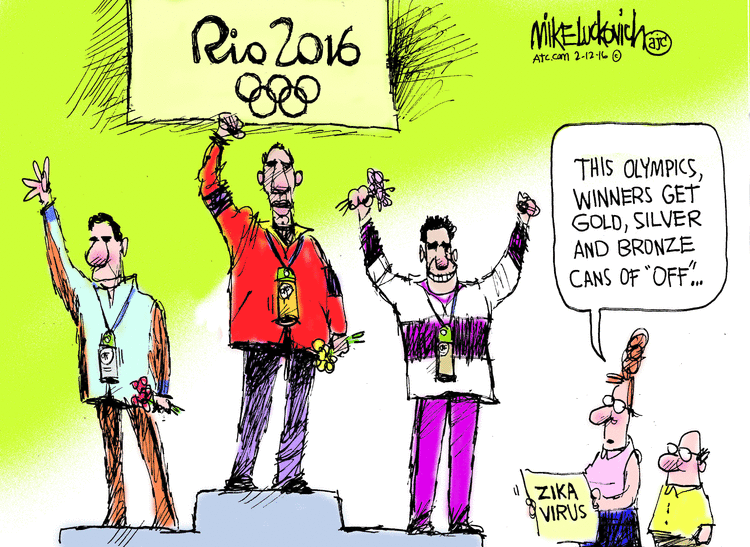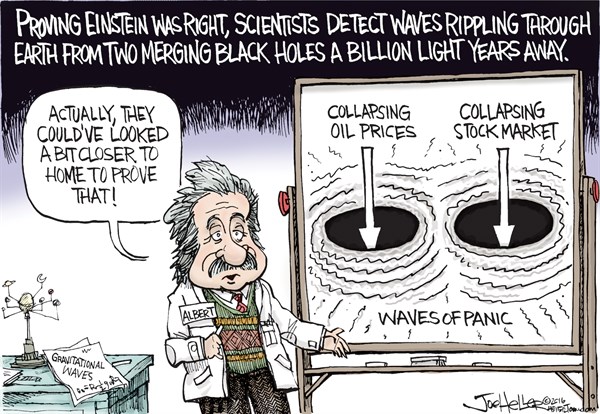Since sophomoric jokes have failed to derail Donald Trump’s presidential campaign (e.g., running silly pictures of Trump, mocking his soundbites while ignoring his policies and his authoritarian condemnations), let’s try understanding what’s happening.
So, is Trump a problem, or just a symptom of the problem? And folks, what is the problem? The Donald captured the essence of “the problem” in his Super Tuesday victory speech: (Brackets and emphasis by the Wrongologist)
People in the middle-income groups are making less money than they were 12 years ago. And in her speech, [Hillary Clinton] said, ‘they’re making less money.’ Well, she’s been there with Obama for a long period of time. Why hasn’t she done anything about it?
Trump for the win! He asks a question that neither Hillary Clinton, or the Establishments of both parties, have a satisfying way to answer (so far), something like what we said about John Kerry being “for the war before he was against it.”
The nation’s real problems are those articulated by Bernie Sanders, but he is not a messenger who can win in the fall. But his popularity, and that of Donald Trump show that we are looking at the swelling of a populist wave in America. Maybe it is still far from the beach; maybe it is just a ripple. We will know in November, but early signs are that the wave could be big when it hits us.
Consider Trump’s victory in the Massachusetts primary – 310,847 voted for Donald Trump. That gave him 49.3% of the vote in a five-candidate race. A pretty overwhelming endorsement, even considering that independents can vote in either primary, and many use that option to vote against a candidate.
The next day, Massachusetts’ Republican Governor Charlie Baker refused to endorse him. He said that he did not vote for Trump on Tuesday and:
I’m not going to vote for him in November.
Charlie Baker is immensely popular with pretty much every segment of the state’s voting population; his job approval numbers are about 70%. He’s perceived as highly competent at running the government, he’s socially liberal, and people just plain like him. So, Baker doesn’t need the Trump wing of the GOP.
Trump isn’t going to carry Massachusetts in November, Clinton and Sanders totaled 1,190,500 votes between them. But the current populist resurgence will not end with Bernie’s failure to win the Democratic nomination, or with a Trump general election loss in November, because the underlying anger isn’t going away. Remember that Trump and Sanders totaled 897,500 votes in MA, to Hillary’s 603,800. From Fabius Maximus:
Populism’s resurgence has, as always, terrified our ruling elites and their servants. Since most journalists don’t understand it, Campaign 2016 is a series of surprises to them.
Maximus goes on to say that from the start of Trump’s campaign, the similarities between Trump and Andrew Jackson were obvious: Trump’s isolationist foreign policy (but bellicose towards threats), his hostility to minorities and Wall Street bankers, his concern for the poor, his appeal to national greatness — these same views also astonished the elites in 1830 when Andrew Jackson rode the wave to the White House. The 1830 elites despised Jackson like today’s elites despise Trump today.
Jacksonians were the first populists in America to gain power. Even today, their strain of suspicion of federal power, skepticism about both domestic and foreign do-gooding (welfare at home, foreign aid abroad), opposition to federal taxes, but obstinately fond of federal programs seen as primarily helping the middle class (Social Security and Medicare, mortgage interest subsidies) continues.
These “Crabgrass Jacksonians” constitute a large political bloc in America. Crabgrass Jacksonianism sees the contemporary homeowner working on his/her modest suburban lawn, as a hero of the American story.
The Establishments of both parties may have fun demonizing their populists, but they ignore the similarities between the strategies of Trump and Sanders, and the appeal both have to significant numbers in both parties. Separately, progressives and populists are weak. If they can be combined as they were at the time of the New Deal, they can be a huge force for change.
US News reports that historical patterns and political data all show that the real presidential election battle takes place in just seven states: Florida, Ohio, Virginia, Colorado, Nevada, Iowa and New Hampshire. Based on recent Clinton vs. Trump head-to-head polls in these seven states, Trump is within striking distance of winning the general election against Clinton.
For those who believe a Trump presidency is not really possible in today’s America, you may want to re-think that proposition.
That populist wave may be closer to the beach than you think.


